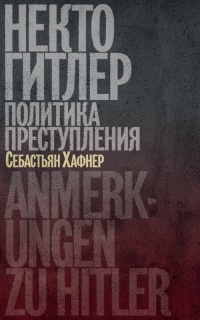Читать книгу - "Сталин и Гитлер - Ричард Овери"
Аннотация к книге "Сталин и Гитлер - Ричард Овери", которую можно читать онлайн бесплатно без регистрации
72. Lorant, Hitler’s Prisoner, pp. 92–3, 155.
73. K. Orth Das System der ns Konzentrationslager: Eine politische Organisationsgeschichte (Hamburg, 1999), pp. 47, 51–3; Pingel, Häftlinge unter SS-Herrschaft, pp. 69, 71.
74. Pingel, Häftlinge unter SS-Herrschaft, pp. 70–71.
75. N. Wachsmann ‘“Annihilation Through Labor”: The Killing of State Prisoners in the Third Reich’, Journal of Modern History, 71 (1999), p. 625.
76. G. J. Giles The Institutionalization of Homosexual Panic in the Third Reich’, in R. Gellately and N. Stoltzfus (eds) Social Outsiders in Nazi Germany (Princeton, NJ, 2001), p. 235.
77. Giles, ‘Homosexual Panic’, pp. 242–4.
78. G. Grau (ed.) Hidden Holocaust! Gay and Lesbian Persecution in Germany 1933–45 (London, 1995), pp. 4–7, 248–9, 251; Giles, ‘Homosexual Panic’, pp. 244–5; H.-G. Stümke ‘From the “People’s Consciousness of Right and Wrong” to “The Healthy Instincts of the Nation”: The Persecution of Homosexuals in Nazi Germany’, in M. Burleigh (ed.) Confronting the Nazi Past (London, 1996), pp. 154–65.
79. N. Wachsmann ‘Reform and Repression: Prisons and Penal Policy in Germany, 1918–1939’, University of London, PhD thesis, 2000, p. 215.
80. Wachsmann, ‘Reform and Repression’, p. 206.
81. G. Bock ‘Racism and Sexism in Nazi Germany: Motherhood, Compulsory Sterilization and the State’, in R. Bridenthal, A. Grossman and M. Kaplan (eds) When Biology became Destiny: Women in Weimar Germany and Nazi Germany (New York, 1984), pp. 276–80.
82. Y. Lozowick Hitler’s Bureaucrats: The Nazi Security Police and the Banality of Evil (London, 2000), pp. 20–21, 46–8. See too H. Benschel Bürokratie und Terror: Das Judenreferat der Gestapo Düsseldorf 1935–1945 (Essen, 2001).
83. E. A. Johnson Nazi Terror: the Gestapo, Jews, and Ordinary Germans (New York, 1999), pp. 408–11.
84. Johnson, Nazi Terror, pp. 385–7; K. Kwiet ‘Nach dem Pogrom: Stufen der Ausgrenzung’, in W. Benz (ed.) Die Juden in Deutschland 1933–1945: Leben unter nationalsozialistischer Herrschaft (Munich, 1988), pp. 596–614.
85. I. Erhenburg and V. Grossman The Complete Black Book of Russian Jewry (New Brunswick, NJ, 2002), pp. 423–4.
86. Johnson, Nazi Terror, pp. 322–8.
87. Lorant, Hitler’s Prisoner, p. 123.
88. Stalin, Works, vol. xiii, p. 111.
89. R. W. Thurston Tear and Belief in the USSR’s “Great Terror”: Response to Arrest 1935–1939’, Slavic Review, 45 (1986), p. 228.
90. H. Arendt Eichmann in Jerusalem: a Report on the Banality of Evil (London, 1963), p. 22; C. Browning Ordinary Men: Reserve Police Battalion 101 and the Final Solution in Poland (London, 1992).
91. K.-M. Mailmann and G. Paul ‘Omniscient, Omnipotent, Omnipresent? Gestapo, Society and Resistance’, in D. Crew (ed.) Nazism and German Society 1933–1945 (London, 1994), pp. 173–4; R. Gellately The Gestapo and German Society: Enforcing Racial Policy 1933–1945 (Oxford, 1990), pp. 44–6; G. Browder Foundations of the Nazi Police State: the Formation of Sipo and SD (Lexington, Kty, 1990), p. 235, who gives a figure of 7,000 for the Gestapo detective force in 1936.
92. On police routine see Wilhelm, Die Polizei im NS-Staat. In 1938 Interior Minister Wilhelm Frick asked the police to compile a card index (Volkskartei) on every inhabitant aged 5 to 70, a task completed by 1940 (pp. 109–10).
93. Mailmann and Paul ‘Gestapo, Society and Resistance’, pp. 175–7. During the war the Gestapo spent most of its time pursuing non-German political ‘enemies’. See for example R. Otto Wehmacht, Gestapo und sowjetische Kriegsgefangenen im deutschen Reichsgebiet 1941/42 (Munich, 1998).
94. R. Conquest Justice and the Legal System in the USSR (London, 1968), p. 6.
95. Thurston, Life and Terror, pp. 70–71.
96. See C. Graf ‘Kontinuitäten und Brüche. Von der Politischen Polizei der Weimarer Republik zur Geheimen Staatspolizei’, in G. Paul and K.-M. Mallmann (eds) Die Gestapo – Mythos und Realität (Darmstadt, 1995), pp. 73–83; J. Tuchel ‘Gestapa und Reichssicherheitshauptamt, Die Berliner Zentralinstitutionen der Gestapo’, in Paul and Mallmann, Gestapo, pp. 84–100.
97. Merson, Communist Resistance, pp. 50–51; on factory monitoring see K.-H. Roth Facetten des Terrors: Der Geheimdienst der ‘Deutsche Arbeitsfront’ und die Zerstörung der Arbeiterbewegung 1933–1938 (Bremen, 2000), pp. 13–21.
98. S. Fitzpatrick ‘Signals from Below: Soviet Letters of Denunciation of the 1930s’, Journal of Modern History, 68 (1996), p. 834; Thurston, Life and Terror, p. 71.
99. Fitzpatrick, ‘Signals from Below’, p. 835.
100. V. Kozlov ‘Denunciation and its Functions in Soviet Governance: a Study of Denunciations and their Bureaucratic Handling from Soviet Police Archives 1944–1953’, Journal of Modern History, 68 (1996), p. 876.
101. Gellately, Gestapo and German Society, p. 162; see too Johnson, Nazi Terror, p. 365, who shows that in Krefeld civilian denunciations began 24 per cent of cases, while 32 per cent were initiated by the police.
102. Malimann and Paul, ‘Gestapo, Society and Resistance’, p. 179.
103. R. Gellately ‘Denunciations in Twentieth-Century Germany: Aspects of Self-Policing in the Third Reich and the German Democratic Republic’, Journal of Modern History, 68 (1996), p. 939.
104. Fitzpatrick, ‘Signals from Below’, p. 861.
105. J. Connelly The Uses of Volksgemeinschaft: Letters to the NSDAP Kresileitung Eisenach, 1939–1940’, Journal of Modern History, 68 (1996), p. 926. On motivation see C. Arbogast Herrschaftsinstanzen der württembergischen NSDAP: Funktion, Sozialprofi l und Lebenswege einer regionalen NS-Elite 1920–1960 (Munich, 1998), pp. 102–11.
106. Fitzpatrick, ‘Signals from Below’, p. 848.
107. For example, Benvenuti, ‘Industry and Purge’, pp. 61–3, 68–9.
108. R. Evans ‘Social Outsiders in German History: From the Sixteenth Century to 1933’, in Gellately and Stoltzfus, Social Outsiders, pp. 20–44; see too G. Alexopoulos Stalin’s Outcasts: Aliens, Citizens and the Soviet State, 1926–1936 (Ithaca, NY, 2003), pp. 3–11.
109. S. Fitzpatrick ‘How the Mice Buried the Cat: scenes from the Great Purges of 1937 in the Russian Provinces’, Russian Review, 52 (1993), p. 319. no. Baynes, Hitler’s Speeches, vol. i., p. 230.
111. R. Gellately Backing Hitler: Consent and Coercion in Nazi Germany (Oxford, 2001), pp. 51–69. See too B. Engelmann In Hitler’s Germany: Everyday Life in the Third Reich (London, 1988), pp. 34–5. Engelmann, discussing the camps with acquaintances after the war, records the following: ‘My parents spoke of the camps as having an important educational function. Of course in my house there was more talk of “dangerous enemies of the state”, and I also heard that they were dealt with severely.’
Прочитали книгу? Предлагаем вам поделится своим впечатлением! Ваш отзыв будет полезен читателям, которые еще только собираются познакомиться с произведением.
Оставить комментарий
-
 Илья12 январь 15:30
Книга прекрасная особенно потому что Ее дали в полном виде а не в отрывке
Горький пепел - Ирина Котова
Илья12 январь 15:30
Книга прекрасная особенно потому что Ее дали в полном виде а не в отрывке
Горький пепел - Ирина Котова
-
 Гость Алексей04 январь 19:45
По фрагменту нечего комментировать.
Бригадный генерал. Плацдарм для одиночки - Макс Глебов
Гость Алексей04 январь 19:45
По фрагменту нечего комментировать.
Бригадный генерал. Плацдарм для одиночки - Макс Глебов
-
 Гость галина01 январь 18:22
Очень интересная книга. Читаю с удовольствием, не отрываясь. Спасибо! А где продолжение? Интересно же знать, а что дальше?
Чужой мир 3. Игры с хищниками - Альбер Торш
Гость галина01 январь 18:22
Очень интересная книга. Читаю с удовольствием, не отрываясь. Спасибо! А где продолжение? Интересно же знать, а что дальше?
Чужой мир 3. Игры с хищниками - Альбер Торш
-
 Олена кам22 декабрь 06:54
Слушаю по порядку эту серию книг про Дашу Васильеву. Мне очень нравится. Но вот уже третий день захожу, нажимаю на треугольник и ничего не происходит. Не включается
Донцова Дарья - Дантисты тоже плачут
Олена кам22 декабрь 06:54
Слушаю по порядку эту серию книг про Дашу Васильеву. Мне очень нравится. Но вот уже третий день захожу, нажимаю на треугольник и ничего не происходит. Не включается
Донцова Дарья - Дантисты тоже плачут





